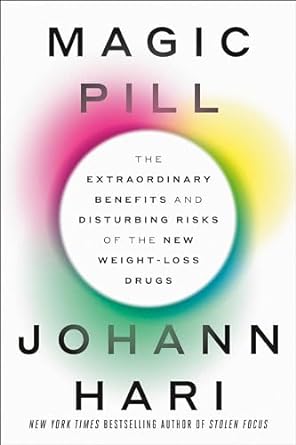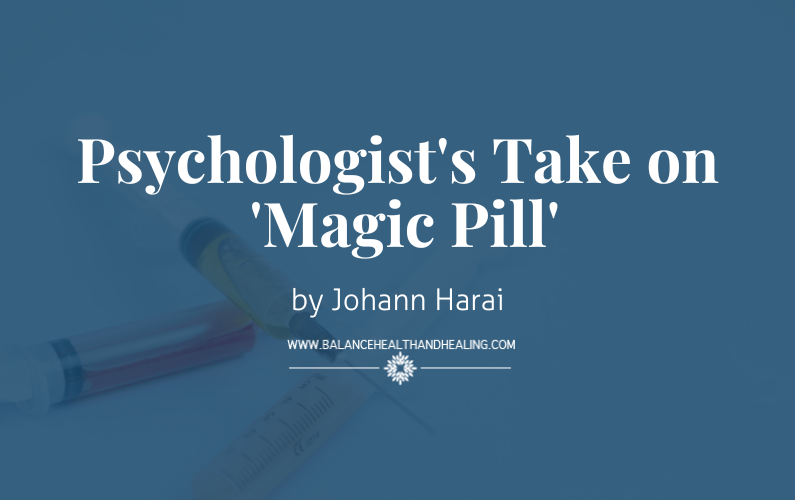Those of us in the world of treating eating disorders and body image concerns have been following the Ozempic craze for a couple of years now. Today, everyone knows about Ozempic given its proliferation in our society. Ozempic is literally the zeitgeist of our times. In May of this year, CNN reported that 1 in 8 US adults have been on a GLP-1 drug (like Ozempic and Wegovy) and more than 15 million US citizens are actively using this prescription. Beyond this, 25,000 people are getting a new prescription for these Wegovy each week in the United States. We all know people, or know of people, who are taking these drugs. The impact of this drug has been compared to the inception of the iPhone and birth control pills. These drugs have the reputation of being the long hoped for “miracle pill” to “cure the obesity epidemic.”
 As you can imagine, I have many concerns, feelings and opinions about these drugs. That said, I am also trying to understand all sides of this controversy. In this effort, I recently read the newly published book, “Magic Pill: The extraordinary benefits and disturbing risks of the new weight-loss drugs” by Johann Hari.
As you can imagine, I have many concerns, feelings and opinions about these drugs. That said, I am also trying to understand all sides of this controversy. In this effort, I recently read the newly published book, “Magic Pill: The extraordinary benefits and disturbing risks of the new weight-loss drugs” by Johann Hari.
First, I’ll talk about what I liked about this book. I appreciated how well Hari covered these weight loss drugs, including the societal narratives, structures, and factors that shape our understanding of these issues. He also documented the limitations of our knowledge about how these drugs work and how they will impact people individually and societtaly as a whole. Hari did a comprehensive job of documenting the “pros,” “cons,” and “risks” associated with these drugs. “If you want a book uncritically championing these drugs, or alternatively a book damning them, I am afraid I can’t give it to you.” Hari identifies and shares research about the known medical and psychological risks associated with these drugs. They are not minor concerns and initiating these drugs should be carefully considered and explored with one’s (competent and knowledgeable) doctor before initiating treatment.
My favorite part of the book came from Hari’s honest self-confrontation around his own ambivalence about these drugs and his incentives to take them himself. Hari shares a painful and direct conversation he had with a good friend, who confronts him about his body image concerns. She accuses him of hiding behind “health concerns” to justify his use of Wegovy, when in reality, his main incentive to lose weight is his vanity. Hari admits this to be true and engages in meaningful exploration of how weight stigma and body image distress affect mental health and societal values. While many people may take these drugs for health reasons, it is undeniable that these drugs continue to foster and fan the flames of the toxic thin ideal.
At the heart of “Magic Pill” is a critique of the quick-fix mentality prevalent in our approach to health and wellness. Hari argues that while medications like Ozempic may offer immediate results, they often mask underlying societal and relational factors contributing to mental and physical health issues. He emphasizes that the use of such drugs, particularly in the context of weight loss, raises critical ethical questions about our values, the pressure to conform to societal beauty standards, and the pharmaceutical industry’s role in shaping these narratives.
 Now for what I didn’t like. I did not like Hari’s villainization of the food industry. I would never recommend this book to a client with an eating disorder as the content he shares about how our food is made and processed would be very triggering. He was overly reductionistic in his conclusions about the food industry. While I do not deny that there are problems inherent in our food industry and there are solutions to these problems that should be explored, I also know of the pathology and paradoxical unhealthy relationship we create with food through villainizing it.
Now for what I didn’t like. I did not like Hari’s villainization of the food industry. I would never recommend this book to a client with an eating disorder as the content he shares about how our food is made and processed would be very triggering. He was overly reductionistic in his conclusions about the food industry. While I do not deny that there are problems inherent in our food industry and there are solutions to these problems that should be explored, I also know of the pathology and paradoxical unhealthy relationship we create with food through villainizing it.
Similarly to how Hari talks about the food industry, I found his conclusions from the research to be overly reductionistic, often based on conversations with select experts. I understand this book isn’t designed to comprehensively cover all the complexities of this topic, and I felt like some conclusions were premature and lacking in nuance.
Finally, I feel Hari missed an important hazard of these drugs. He talked about the concerns for people with eating disorders accessing these drugs to facilitate their restriction and weight loss. I absolutely agree and even, anecdotally, already know of doctors giving these drugs to people with known, active eating disorders. This is incredibly problematic and dangerous. But what Hari didn’t explore (perhaps because he doesn’t know enough to predict this) is the likelihood of these drugs creating eating disorders in people who previously have not struggled in this way. These drugs are designed to disrupt intuitive body cues and one’s relationship with food. It is not totally understood how these drugs work, but they affect physical hunger/satiety, as well as desire for food, and decrease reinforcement for consuming food. These drugs are no different from other diets, and ceasing these drugs leads to rebound weight gain. What happens for these individuals who experience distress as their body regains weight, but have lost their intuitive connection with their bodies and food? This is the perfect recipe for the onset of an eating disorder. I hope I’m wrong, but strongly suspect these drugs will correlate with an even sharper rise in eating disorders, beyond the continuous escalation of prevalence we see now.
because he doesn’t know enough to predict this) is the likelihood of these drugs creating eating disorders in people who previously have not struggled in this way. These drugs are designed to disrupt intuitive body cues and one’s relationship with food. It is not totally understood how these drugs work, but they affect physical hunger/satiety, as well as desire for food, and decrease reinforcement for consuming food. These drugs are no different from other diets, and ceasing these drugs leads to rebound weight gain. What happens for these individuals who experience distress as their body regains weight, but have lost their intuitive connection with their bodies and food? This is the perfect recipe for the onset of an eating disorder. I hope I’m wrong, but strongly suspect these drugs will correlate with an even sharper rise in eating disorders, beyond the continuous escalation of prevalence we see now.
Overall, I am glad I read this book and recommend it. It provided a good exploration of the complex and controversial issues surrounding these weight loss drugs. It provides insight into the risks of taking these medications, as well as understanding and compassion for why people feel compelled to seek weight loss drugs in the first place. While Hari takes these drugs himself, and does lean more towards these drugs being a “pro” than a “con,” he also says several times that these drugs treat symptoms and not the underlying concerns that afflict our society and our relationship with food and our bodies. These drugs offer a “quick fix” without pursuing progress toward addressing these underlying concerns.

